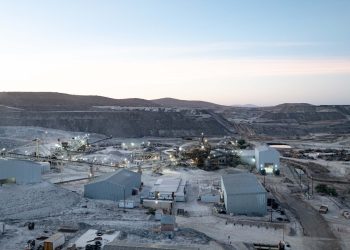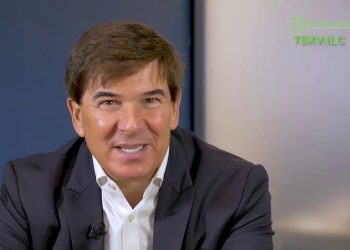
Lepidico has secured a ~N$950 million commitment in the form of a formal mandate and indicative non-binding term sheet in late 2020 with from the US Government’s International Development Finance Corporation (DFC) for its lithium project at Karibib, subject to completion of due diligence, which appears to be in its final stage.
The project, which is in two components – upstream and downstream, according a completed feasibility study, requires US$63 million (N$1.2 billion) in development capital to kick-start.
Lepidico Managing Director, Joe Walsh said the company needs the funding to establish the upstream component of the project, which includes the development of a lithium mine and concentrator.
The company will need another ~US$200 million (N$3.8 billion) for the downstream component comprising the construction of a chemical conversion plant in Abu Dhabi.
“About US$50 million (N$950 million) out of the US$63 million (N$1.2 billion) needed for the project is expected to come from the US Government’s International Development Finance Corporation, with the remaining portion requiring equity financing. We’re in discussions with potential strategic and offtake partners regarding this equity funding,” Walsh said.
He said that the feasibility study, front-end engineering, and design for the initial phase are already completed, with the project poised for the construction phase.
“The downstream component is the chemical conversion plant in Abu Dhabi. It is a vertically integrated project – mine, concentrator and chemical plant. The chemical plant piece is still part of phase one, but it is in Abu Dhabi,” Walsh said, adding that the capital for the chemical plant is just over US$200 million.
Walsh said once funding is secured, the project’s timeline can progress efficiently.
“We intend to place orders for critical long-lead equipment, such as mills, float cells, and thickeners. So, as soon as we get the funding in place, we will be looking at continuing with the detailed design and engineering. But the most important thing is to get those build slots for major mechanical equipment and pay for the deposits,” he said.
To bolster their fundraising efforts, Lepidico is working with a London-based specialist debt advisor.
Walsh said the company has been in discussions with the US financier for two years for the core funding of around US$50 million (N$950 million) for the Namibian part of the project.
He said the financier has completed technical, environmental and social due diligence and is finalising the legal due diligence.
“The primary goal of the company is to finalise financial arrangements during the current quarter, a critical step that will enable construction to commence, subsequently creating potential job opportunities,” he said.
The Lepidico lithium project is expected to generate 120 permanent jobs, with a sizeable portion of those positions being filled from the nearby town of Otjimbingwe, south of the project’s operations in Karibib.
Walsh said one of the challenges faced by the company is securing a skilled workforce.
He however, indicated the company has engaged an all-Namibian leadership team in Namibia, who will then recruit for management and superintendent-level positions within the operation.
Lepidico’s project aims to produce approximately 5,000 tonnes of lithium hydroxide per annum with an operating life of for an impressive 19 years. In addition, the company explores the production of “strategic caesium and rubidium high-value products”, along with bulk by-products, collectively yielding an aggregate production of more than 7,000 tonnes per annum on a total lithium-equivalent basis.
The company’s resource estimates underscore the project’s significant potential, with total proved and probable resources of 9.43 million tonnes grading 0.43% Li2O ,which includes Rubicon tailings yielding “probable” resources of 71,000 tonnes at ~1% Li2O.







